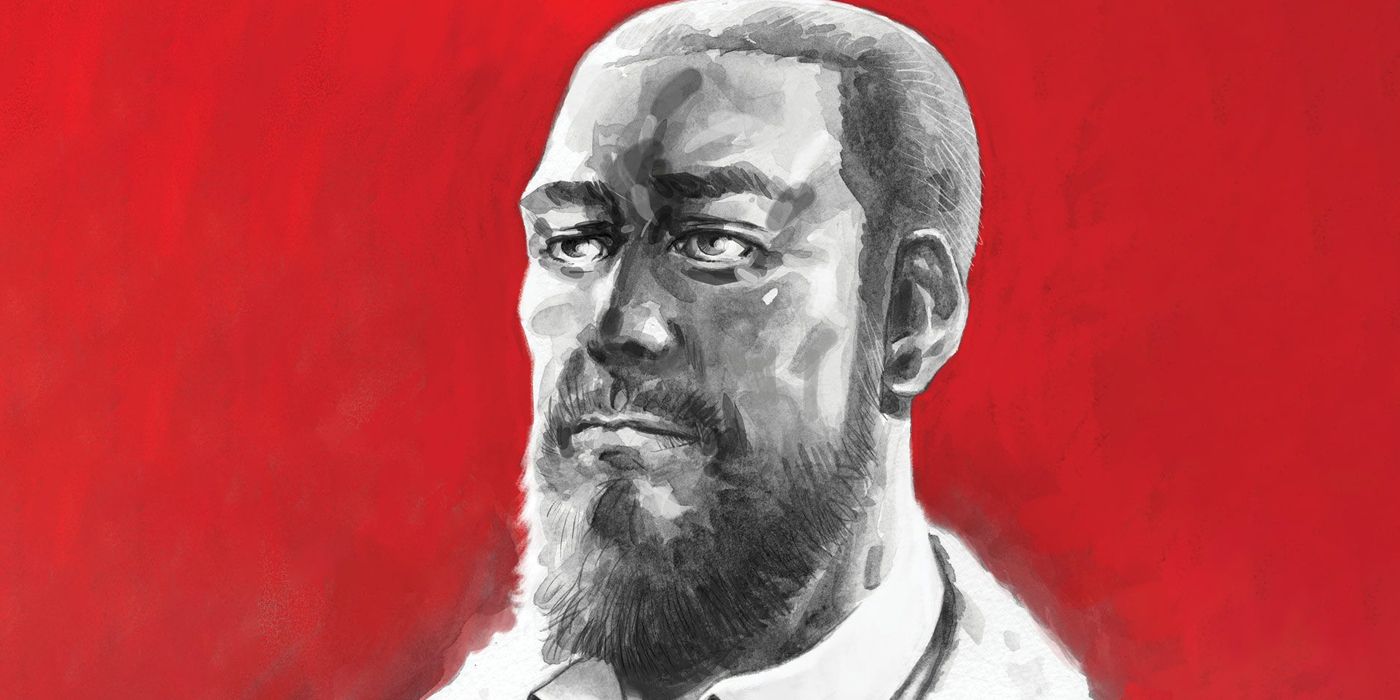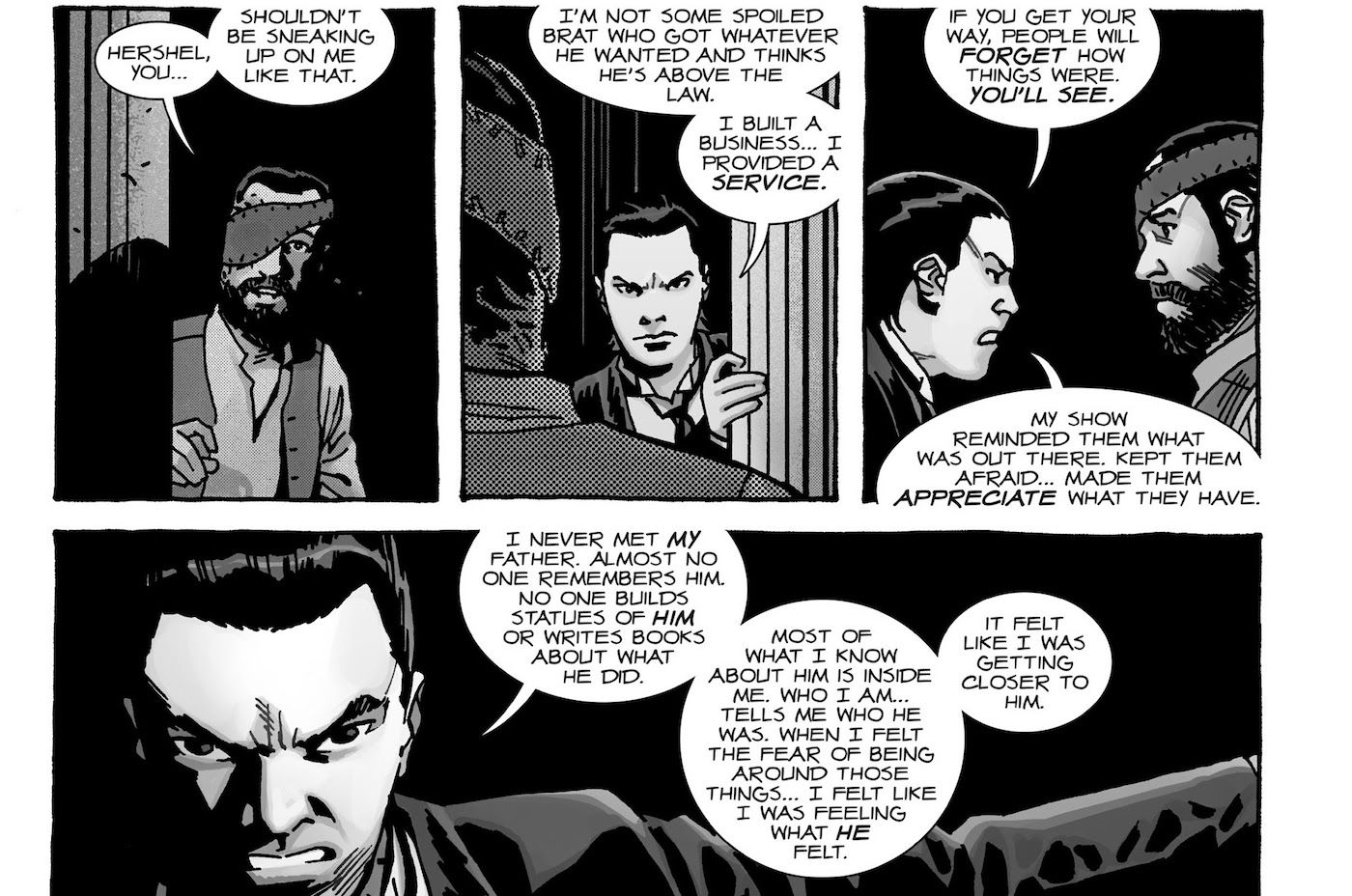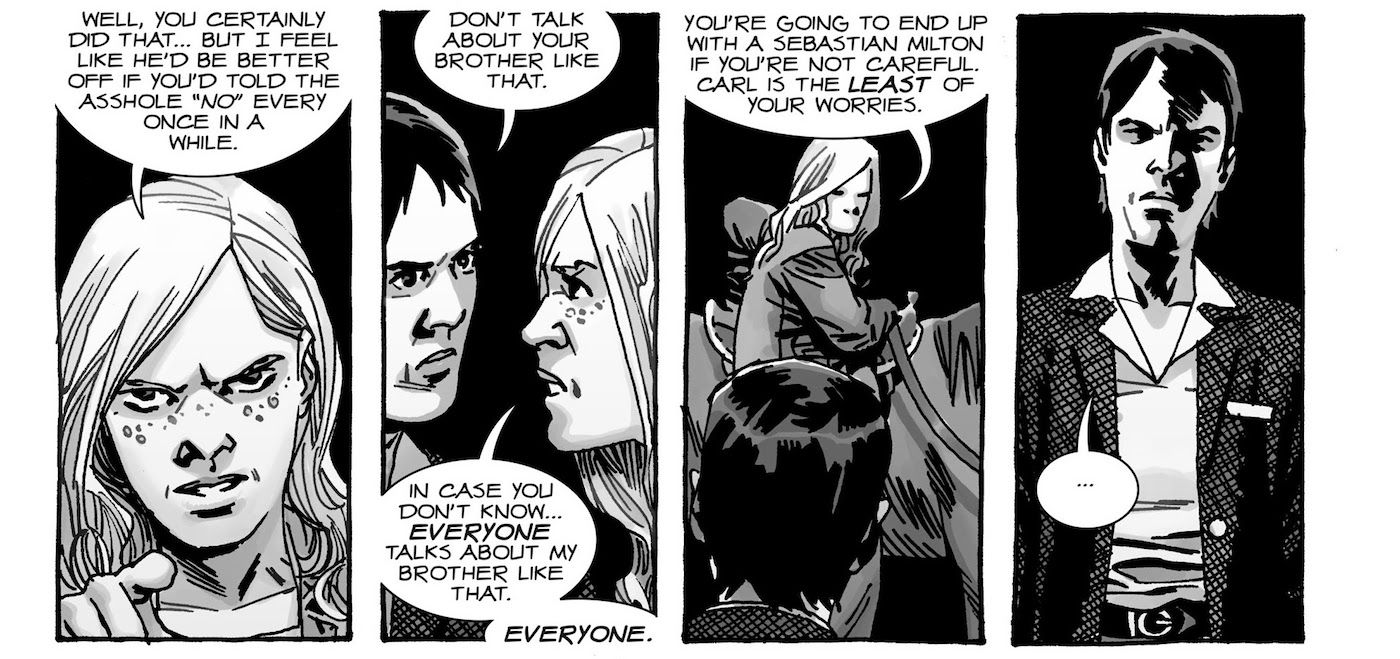WARNING: The following article contains spoilers for The Walking Dead #193 by Robert Kirkman, Charlie Adlard, Rus Wooton and Cliff Rathburn, on sale now.
In the the surprisingly hopeful ending to Robert Kirkman's The Walking Dead, one negative note in particular stood out: Hershel Rhee. For years now, fans have been waiting to see Glenn and Maggie's son grow up and embody the optimism and ambition of his parents, like Carl, but the finale cast the adult Hershel as a very different figure.
Hershel turns out to be a spoiled brat in his 20s who makes a for-profit traveling carnival road show using zombies that gives the people of a peaceful future the chance to see a Walker up close. However, as much as it's intriguing to see him go off the rails, what Kirkman ultimately does with Hershel's character is actually something that pays homage to Rick Grimes' death and overall legacy in the worst way possible.
An older Carl butts heads with Hershel, as he can't control his zombies, letting one get into his property from town. Carl kills it and Hershel takes him to court for destroying it. It all comes to a head when Maggie, president of the Commonwealth now, instructs the judge to let Carl go, so long as he replaces the zombie. Carl is incensed and ends up killing all Hershel's zombies, even slugging the young man when they argue about what's moral with regards to ethics and business in the new world.
Hershel does come off as somewhat sympathetic, admitting being near zombies is the only way he can feel a spiritual connection to the dad Negan killed before they could meet, but he seems to have a madness about him and could be another tyrant in the making. He may not be the Governor, Negan or Alpha, but he's severely deluded, which ends with Maggie placing him under house arrest, knowing that she's got a loose cannon on her hands.
When Sophia, Hershel's adoptive sister and Carl's wife, tells Maggie she's raising another Sebastian Milton, the story really leaves a bad aftertaste in the mouth of the reader. The story even suggests that the animosity comes from Hershel being jealous Rick's praised and has monuments built to him, while Glenn remains an unsung hero. It's this kind of petty insecurity that drove Sebastian -- thinking Rick's camp was going to take the Commonwealth and turn it into their utopia -- to murder the hero, so it's clear parallels are being drawn.
It leaves us wondering, though, why would Kirkman bring back a brat in this way, especially with Rick's death lingering from the previous issue. Everyone in town sees Hershel as Sebastian 2.0, which dishonors the legacy of his grandad and the Greenes as a whole. In fact, Glenn and Maggie were two of the franchise's biggest heroes, so it feels really uncharacteristic that she'd let the kid grow up like this. His bitter attitude against the world makes some sense, since Glenn was unfairly killed by Negan and Maggie neglected him for her political career, but to be someone like Sebastian spits on Rick's grave.
It sours all the excitement and anticipation that surrounded Hershel's character reveal, and it ultimately just doesn't do Rick's story justice by painting another whiny child -- who clearly doesn't value human life -- in their camp. Rick tried to get through to Sebastian, only to be killed in his bed, which ultimately felt like we were sold short. He was a new villain, and people expected Rick to go out in a blaze of glory, not at the hands of some punk.
For Kirkman to then turn Hershel into Sebastian 2.0, it brings back memories of Rick's underwhelming death and feels like, just as with Sebastian, the book is trying to force a piece of shock value here.
However, no one had any emotional connection to Sebastian, which is why people were ticked off he killed Rick. The same applies for Hershel -- by having him embark down this path, the emotional connection we had with him is absolutely gone. Instead of crafting a memorable final antagonist, the finale essentially recycles one of the book's most disappointing characters and uses Hershel to remind us that Rick died because of his hope and the belief people could be better.
While Hershel could be angling for a potential spinoff, it's unlikely people will be interested in seeing this person who descended from heroes being selfish and uncaring. On the whole, fans didn't care for Sebastian much, and it doesn't seem Hershel will make any friends. Because he ends up being everything Rick stood against, introducing an adult character like Hershel feels disrespectful to Rick's memory and everything he worked -- and died -- to achieve.



